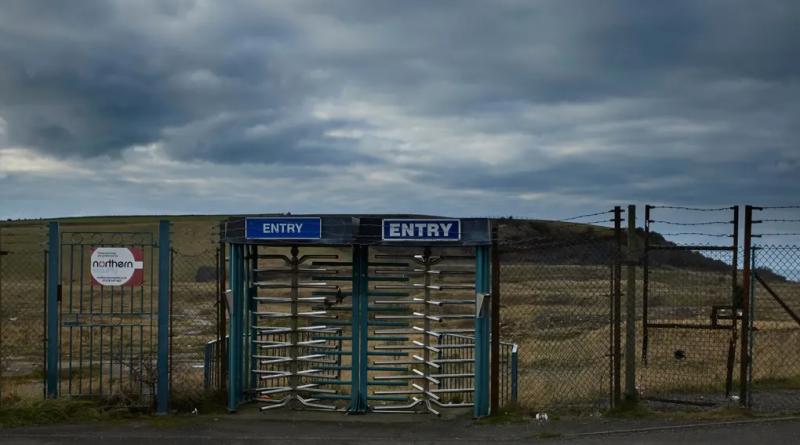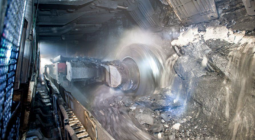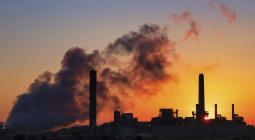Have no doubt: opening a coalmine in Cumbria is a climate crime against humanity

Locals desperate for lower bills, jobs and economic revival have been seduced by this plan, but they – and we – will suffer
Today, the government has thrown its weight behind a climate-busting, backward-looking coalmine in Cumbria. The staggering hypocrisy of demanding other countries phase down coal, just when we’re phasing it back in again, sends a truly terrible message to global south countries and marks this decision as a climate crime against humanity.
Given this, you’d be forgiven for wondering why a new coalmine appears to have garnered local support. Areas such as Whitehaven in west Cumbria have been told it will “level up” the community – bringing lower bills, more jobs and economic revival to areas that have severely lacked all three for generations. So when a private coal company turned up, the community, understandably nostalgic for its more prosperous past, bit their arm off.
This mine threatens to pump out 9m tonnes of CO2 emissions each year – equivalent to the cities of Edinburgh, Cardiff and Belfast combined. Tory backbenchers, senior figures and even the former Cop26 president, Alok Sharma, have all begged the government not to open this mine. But now, past climate pledges to reduce emissions and phase out coal have been conveniently forgotten, and current clamours have fallen on closed ears. Our oft-trumpeted claims of climate leadership bypassed; our credibility on the world stage in tatters.
It’s equally false for ministers to claim now that, after the devastating war in Ukraine, we need to ensure that energy bills don’t spiral further and rely on our own “domestic resources”. Whitehaven will produce coking coal for the steel industry, not for power generation – it will make absolutely no difference to household energy bills, and will do nothing to improve domestic energy supply.
Yet even the steel industry itself neither wants nor needs this coal. British Steel (one of the UK’s two major steel customers) has said it is unlikely to use the coal, owing to its high sulphur content. A steel expert states that the mine “would not displace a single tonne of Russian coking coal from the UK”, since Russia also uses a different type of coking coal. As the Climate Change Committee notes, the site won’t support the UK steel industry at all because 85% of the coal will be exported abroad.
Instead, the steel industry is looking to the future. “Green steel” uses electric arc furnaces (EAF) to produce steel from direct reduced iron (DRI). While early-stage green steel still uses some gas, the process can become zero or very low carbon through the use of hydrogen, produced by electrolysis using renewable energy. So those coal jobs promised? They won’t last long when the mine becomes an enormous stranded asset.
It’s clear that this mine will be nothing more than a toxic, expensive and useless dump by circa 2030. But until there is a convincing, transformative plan for a greener future, no one will consider alternative solutions.
For example, one local report last year found that over the next 15 years, 9,000 green jobs could be created in Cumbria – of which 4,500 would be specifically in west Cumbria, where this coal will be dug up. That’s nine times the numbers of jobs expected from the mine. From generating renewable electricity, to retrofitting buildings – these are high-skilled, high-quality, long-term jobs for the future.
Then there’s economic revival. The only way to replace fossil fuels in the long term is ambitious investment in renewable energy. There is a greener route to the local prosperity that areas such as west Cumbria are craving. And it’s happening right now, in places including Lewes, where Greens jointly run the council – by pooling resources with neighbouring areas, they’re insulating 40,000 social homes across the region, installing renewable energy, and keeping jobs required for those services within the local area.
While Whitehaven won’t make any difference to fuel bills, the government could be doing things that will. When we have the leakiest homes in Europe, we need to insulate the nation with enough funding to make it work. The cheapest energy is the energy we don’t use – so let’s help people save rather than squander.
This is the kind of future that not only west Cumbrians could have – but one we could all have. Where people are warm in their homes, safe in a high-skilled job, paying affordable energy bills – and starting to address the climate crisis at the same time.
We mustn’t keep yearning for the past, when there is so much potential for a bright future ahead. And that future starts by keeping this coal in the ground.
-
Caroline Lucas is the Green MP for Brighton Pavilion
cover photo: The former Woodhouse colliery in Whitehaven, Cumbria is the site for West Cumbria Mining's plan to open a new coalmine. Photograph: Christopher Thomond/The Guardian






